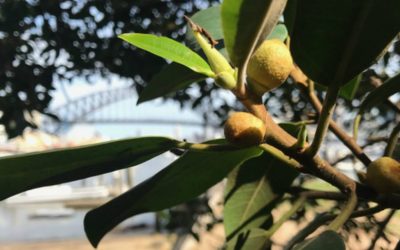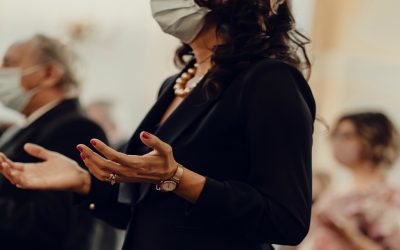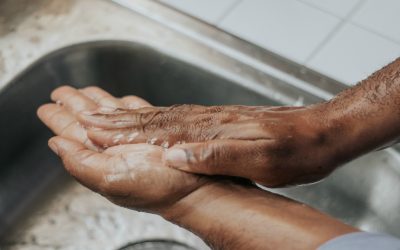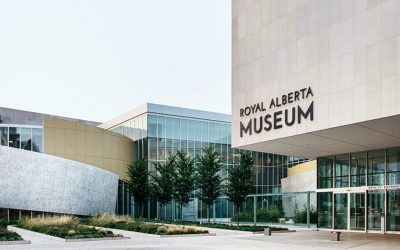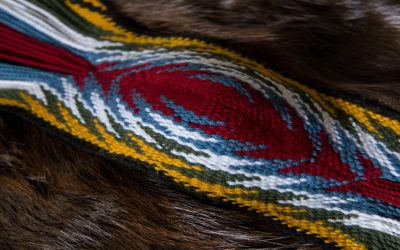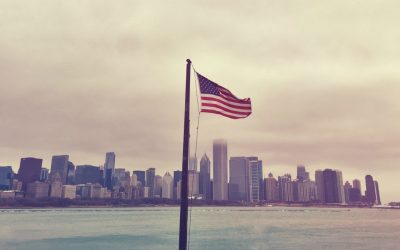ISSUE 9: Change*
Change is good. But mostly if it’s at the right time, in the right place, and at the right dose. Predictable change, like a soft new sweater, is the most comfortable. The change created by a global pandemic is accelerated and unpredictable…
The COVID-19 pandemic has accelerated cultural changes across the world. Photo by Shownen Kang/Unsplash.
STORIES IN THIS ISSUE
Cross-Cultural Australian Perspectives on the Pandemic
Many Aboriginal communities in Australia had been closed to outsiders before a pandemic was called…
Funerary Rites: How we Mourn and Bury our Dead During a Pandemic
Funerals, burials and communally commemorating those who have died have always been part of human history…
How COVID-19 is Changing our Relationship with Money
Despite scientific evidence that currency does not transmit COVID-19, there is wariness around the use of cash…
The Politics of Habits and Citizenship During the COVID-19 Pandemic
Government attempts to control the spread of COVID-19 have changed personal hygiene from mundane habits to essential acts…
A Change of Space: How COVID-19 Affects Personal Space
COVID-19 presents us with a way of cultivating awareness around physical distancing and personal space…
The Medicine of Belief: Health from the Viking Age and Onwards
Before the existence of germ theory, people in the past found different explanations to understand death and disease…
Curation and the Coronavirus: Collecting Pandemic Artifacts (Q&A)
Culturally Modified interviews Royal Alberta Museum curator Pat Myers about collecting items in a pandemic…
Breathe. Collective: Traditional Artists on Pandemic Masks
For many Indigenous people in North America, the COVID-19 pandemic has carried echoes of a not-so-distant past…
America Unraveling: Wade Davis and America’s Undoing
Wade Davis suggests that COVID-19 pandemic signals the beginning of the end of the American empire…
CHANGE*: INEVITABLE, BUT ACCELERATED
Change is good. But mostly if it’s at the right time, in the right place, and at the right dose. Predictable change, like a soft new sweater, is the most comfortable. But the change created by a global pandemic is both accelerated and unpredictable.
Most of us haven’t experienced rapid change of this magnitude, so we find metaphors to explain COVID-19: we’re waging a war against it, or it’s leading us through a portal, or we’re bracing for each of its waves as if sheltering from a natural disaster.
In the past, pandemics have led to some surprising outcomes. They’ve often revealed areas in our society where we need to improve. After the outbreak of the bubonic plague in the 14th century, the diets of survivors got better, and people became more resilient to the disease. After an outbreak of cholera, British Doctor John Snow was able to link the illness to contaminated drinking water, which prompted investments in water sanitation. The Spanish Flu led to awareness around inadequate housing and overcrowding, which enabled countries like Sweden to fight social inequality through welfare.
COVID-19 presents us with similar awareness and opportunities for innovation through technology, communication, and collaboration.
Our world is changing. We contend with new regulations, we spend more time at home, we stomach the strong scent of hand sanitizer on a daily basis. Yet, as human beings, we’re always in conversation with our world. So, while the coronavirus changes our world, our world changes us, too.
Change is everywhere. It’s unsettling, groundless, shaky. But it can also lead to improvements and innovation.
In our ninth issue, we’re featuring cultural experts to understand just how COVID-19 is shaping us. First, Terje Oestigaard takes us to the Viking Age and beyond, so that we can understand how beliefs, spirituality, and superstitions affect our approach to medicine.
Pat Myers, from the Royal Alberta Museum, helps us understand how our experience will impact people in the future. We caught up with Pat about what it’s like to collect objects from the pandemic, and how the face mask has become emblematic.
Our Social Media Spotlight showcases how two Métis women, Nathalie Bertin and Lisa Shepherd, created an online space where traditional artists and artisans share handmade face masks, combining the traditional with the contemporary, in an article by Connie Kulhavy.
Change is felt in our day-to-day lives. Rick Budhwa reveals how our personal space bubbles are shifting, and how culture can determine how we deal with physical distancing. Bicram Rijal explores the politics of handwashing, and how directives from the government aren’t one-size-fits-all when different populations have different needs.
The coronavirus may even be affecting the loose change in our pockets. Anwar Sheluchin examines how COVID-19 is affecting our relationship with money.
Sweeping change inhabits all spheres, including our ability to grieve. Stephanie Parker interviews Anthropologist Matthew Engelke about how the coronavirus has upended funerary and burial rituals across the world.
Like the pandemics that came before it, COVID-19 is exposing systemic inequalities around the world. We take a look at Australian perspectives on the pandemic with Phil Hunt and Liesa Clague. And in North America, we look at an article by Culturally Modified favourite Wade Davis, in an analysis of his ground-breaking article about the unraveling of America.
Change is everywhere. It’s unsettling, groundless, shaky. But it can also lead to improvements and innovation. To use a metaphor, this pandemic is a lens through which one might see the world more clearly. A new way of seeing the world leads to new choices and new ways of being.
